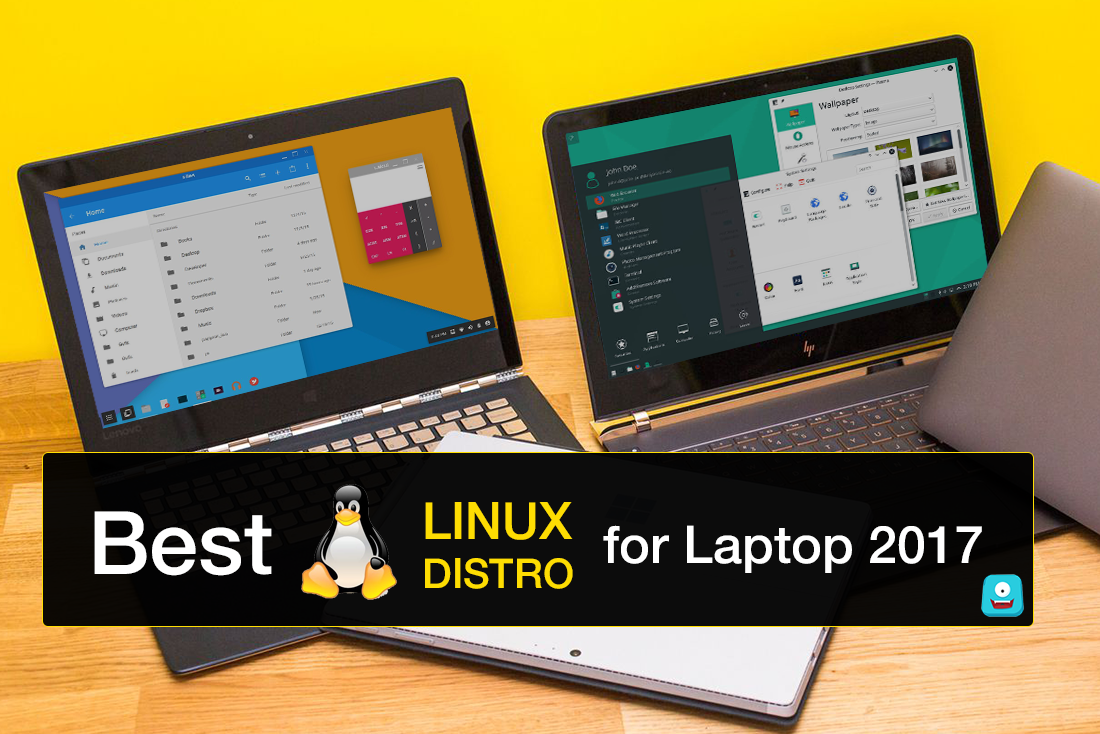Best Linux Distro for Developers | Linux Distributions for Programming 2018

Linux has always been synonymous with coding. So, it doesn’t come as a surprise when most developers prefer Linux operating systems as their choice of OS. But what about the best Linux distro for developers? This list will help you find the top Linux distribution whether you are a learner or an ace programmer.
However, before I discuss the list of top Linux distros, there are a few things to keep in mind.
What a Developer/Programmer Should Look For in a Linux OS
- Stability: The OS should be a stable version.
- Lightweight: The distro should carry no unnecessary software or bloatware which are not required. Hence, a lightweight distro is preferred so that you can focus on coding and nothing else.
- Community Support: A developer might often get stuck in a pickle when developing a new product or trying a new code. Great community support will be an additional advantage in such a scenario.
- Updates: Select a distro that comes with Long-term support or rolling updates. For a developer or programmer, it is important to keep up to date software and a reliable steady OS like certain Linux distros will help just fine.
- Personal Preference: Another thing to be taken into consideration is your personal preference. What kind of UI do you prefer to work on? Lightweight options like XFCE, LXDE or heavy loaded Desktop Environment such as Cinnamon, Unity?
Other things you may as well keep in mind include package management, compatibility, power and flexibility of the Linux Distro.
Now, let’s get to our list…
Best Linux Distro for Developers & Programmers 2018
1. Arch Linux
At a Glance:
- Based on: Linux OS
- Architecture: arm, x86_64
- Desktop Environment: Cinnamon (other options available)
- Package Manager: Pacman
Install Arch Linux here
Arch Linux is a minimal Linux distro for developers that allows you to customize the OS from the beginning itself. Decluttering with only the required packages and creating your custom installation means less load of bloatware and more control over your system.
It also offers updates for all packages with full dependency tracking using its homegrown package manager, pacman. More so, you also get to create your own packages with Arch Build System.
If you are an experienced Linux programmer or developer and want an always updated OS, look no further and get Arch Linux for you.
Minimum Hardware Requirements for Arch Linux
- x86_64 based processor
- 512 MB RAM
2. Ubuntu
At a Glance:
- Based on: Debian
- Architecture: arm, x86_64, powerpc
- Desktop Environment: Unity, GNOME
- Package Manager: Synaptic
Install Ubuntu here
Ubuntu is the most favored Linux operating system for developers, programmers and beginners alike. Based on Debian, Ubuntu comes in many flavors to suit the needs of all kinds of users.
For developers, Synaptic package manager supports easy graphical installation an updation of packages. However, you can also get .deb packages easily. With the latest Ubuntu LTS, you are also entitled to a 5-year support for maintenance and security updates.
Are you looking for a stable and reliable Debian based Linux distro?
Get started with Ubuntu.
Minimum Hardware Requirements for Ubuntu
- 700 MHz Processor
- 512 MB RAM
- 5 GB Hard Disk Space
- CD/DVD or USB port for installation
3. OpenSUSE Tumbleweed
At a Glance:
- Based on: Linux OS
- Architecture: arm, x86_64
- Desktop Environment: Cinnamon, GNOME, KDE, LXDE, Xfce, Openbox
- Package Manager: zypper
Install Tumbleweed here
openSUSE is an independent Linux distro for developers sponsored mainly by SUSE Linux community. Coming in two flavors, Tumbleweed and Leap, openSUSE Tumbleweed is the one that appeals more to power users and software developers.
Tumbleweed comes with a rolling update support which means once you install this best Linux distribution, there would be no more worries for updating your system. Everything will be taken care of automatically.
Also, downloading and finding packages is just amazingly great. Simply visit software.opensuse.org and search for the package you’re looking for. Hit “direct install” option and that’s pretty much it.
By and large, openSUSE Linux distro for developers is a great choice for developers. Thanks to its well-maintained software and a stable platform that comes closest to bleeding-edge Linux, openSUSE tumbleweed is the first choice for most software development enterprises.
Minimum Hardware Requirements for openSUSE
- 2GHz Dual-core processor
- 2 GB RAM
- 40 GB Hard Disk Space
- DVD/USB for installation
4. Fedora
At a Glance:
- Based on: Linux OS
- Architecture: arm, x86_64
- Desktop Environment: GNOME
- Package Manager: RPM
Install Fedora here
Do you ever wonder which is Linus Torvalds most favored Linux Distro?
Well, let me answer it if you don’t already know: Fedora Linux Distribution.
Without a doubt one of the oldest, stable and most preferred Linux Distro, Fedora is backed by Red Hat Linux Enterprise and is a strong advocate of open-source principle. Simply stating, all the softwares and packages you’ll find in Fedora are non-proprietary and open-source.
As an open-source enthusiast, I’d recommend this top Linux distribution for developers. Coupled with a reputation for focusing on innovation, latest technologies, and lightning fast GNOME desktop, Fedora also has a great community support for developers.
Just click on “Start a Project” and you’ll be presented with detailed and dedicated guides on development in Linux. This Developer Portal feature of Fedora sets it apart from all the other distros in this list of best Linux distros for developers 2018.
Minimum Hardware Requirements for Fedora
- 1 GHz Processor
- 1 GB RAM
- 10 GB Hard Disk Space
- CD/DVD for installation
5. Debian
At a Glance:
- Based on: Linux/BSD
- Architecture: arm, x86_64
- Desktop Environment: GNOME
- Package Manager: Aptitude
Install Debian here
Created by Debian Project, this Linux distro has Linux kernel has its base with more than 50,000 packages precompiled and bundled for easier and free download for users.
Highly suggested for advanced programmers and system admins, Debian Linux distro stands at the top with the amount of packages it provides and the stable platform for developers to code and create new software on.
Are you in a fix?
There are tons of tutorials online that can help you out with Debian Linux OS.
If you’re not scared to learn the bells and whistles around Debian and want the sophisticated and polished RPM packages on your system, go with Debian.
The latest “stretch” release of Debian includes many new improvements and bug fixes to ensure you get a robust and fast OS for all your development needs.
Minimum Hardware Requirements for Debian
- 1 GHz processor
- 512 MB RAM
- 10 GB Hard Disk Space
- DVD/USB for installation
Now it’s your pick
Overall, with Linux distros, you’re never short of choices. All things considered, it comes to you as a user and a developer to decide which Linux distribution has the features, packages and compatibility you’ll require for your project development.
If you found this list of best Linux distros for developers helpful, be sure to check out the other Linux distributions guide as well.
Here are the quick links for you to check out:
For more such articles on Linux and other niche technology topics, subscribe to Freaksense.
Till then, happy coding!





Thank you for every other wonderful article. Where else may just anybody get that kind of information in such an ideal method of writing? I’ve a presentation next week, and I am at the search for such info.